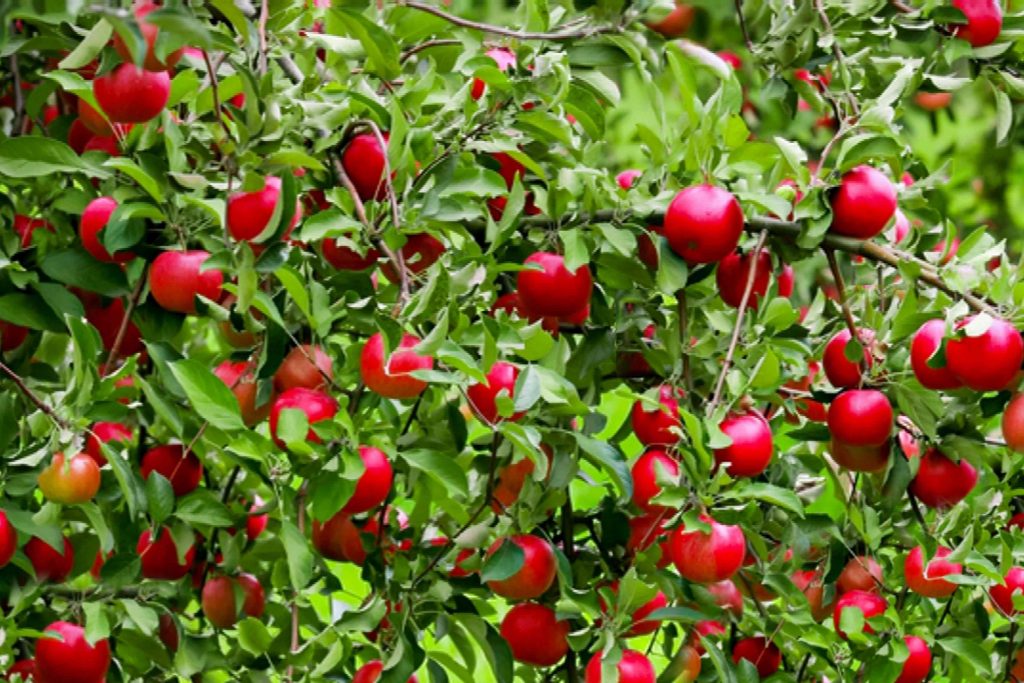Florida is well-known for its tropical fruits, but did you know that you can also grow small fruit trees in the Sunshine State? But what small fruit trees to grow in Florida? Whether you’re looking to add some freshness to your backyard or want to start a small farm, these are the best fruit trees to grow in Florida.
From citrus to avocados, there are plenty of options when it comes to picking the right tree for your needs. And with the state’s warm climate and ample sunlight, you’ll be able to enjoy fresh fruits all year round.
In this article, you are going to know more about some small fruit trees that grow well in Florida. Also, I will try to add more information that will be helpful for you to start a small garden indoors or outdoors with small fruit trees.
What Small Fruit Trees to Grow in Florida
Florida is known for its tropical climate, and there are many small fruit trees that can be grown in the state. Some of the most popular varieties include citrus trees, mangoes, and papayas. Citrus trees are a common sight in Florida, and they can produce a wide variety of fruits including oranges, lemons, and grapefruits.
These trees require full sun and well-drained soil. They are also susceptible to pests and diseases, so it’s important to choose a variety that is resistant to these problems. Mangoes are another popular choice for Florida growers.
These sweet fruits thrive in warm weather and need plenty of sunlight to produce a good crop. Mangoes also require well-drained soil and should be protected from strong winds. Papayas are another tropical fruit that does well in Florida’s climate.
These fruits grow on large trees that can reach up to 20 feet tall. Papayas need full sun and well-drained soil to produce a good crop. They are also susceptible to pests and diseases, so it’s important to choose a variety that is resistant to these problems.
7 Easy And Fast Growing Small Fruit Trees to Grow in Florida
1. Dwarf Orange Tree –
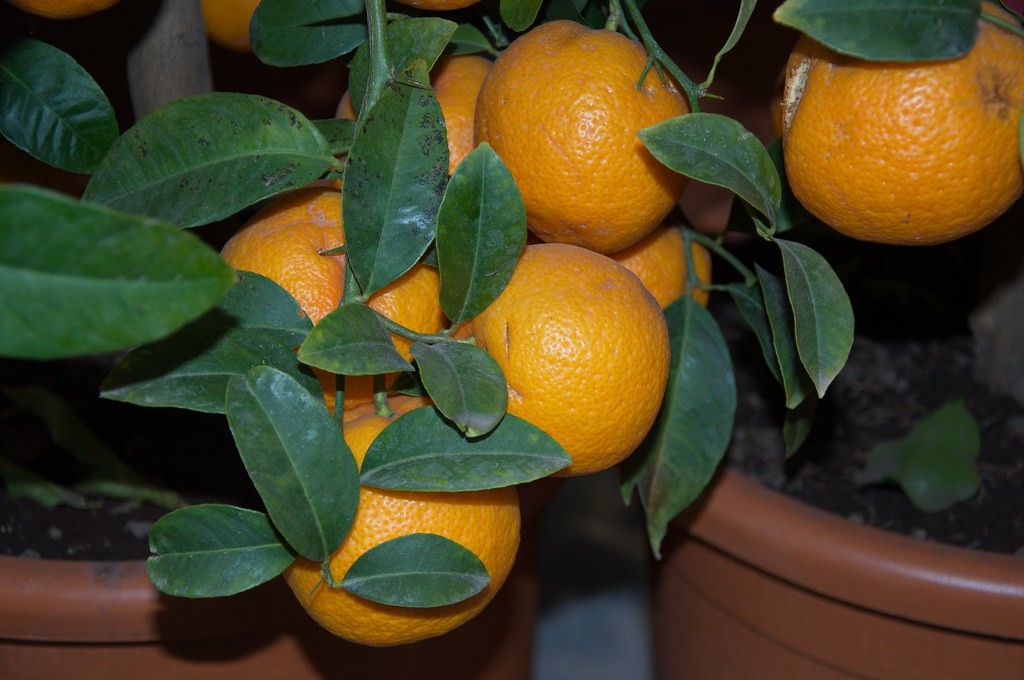
2. Mango Trees:
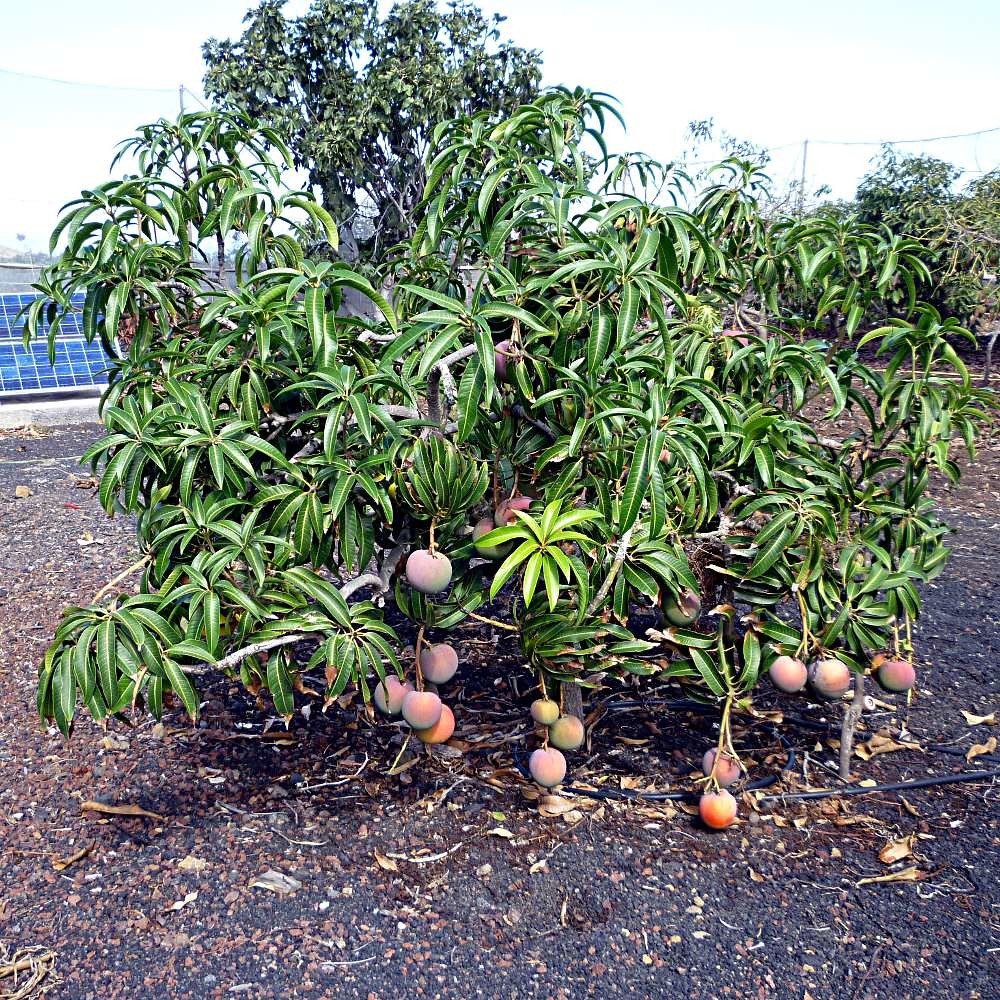
Mango trees thrive in Florida’s heat and humidity. They can be grown in containers or in the ground and will bear fruit within a few years. Mangoes are tropical fruit, so they need full sun and plenty of water.
3. Lemon / Meyer Lemon Tree –
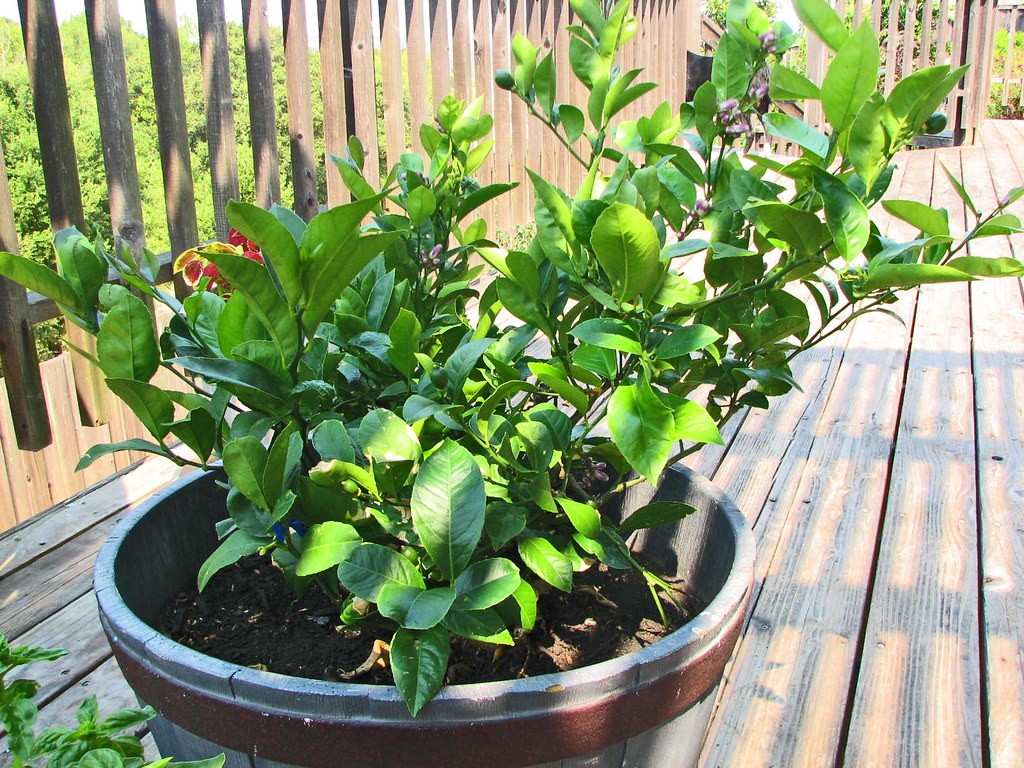
4. Avocado Tree –
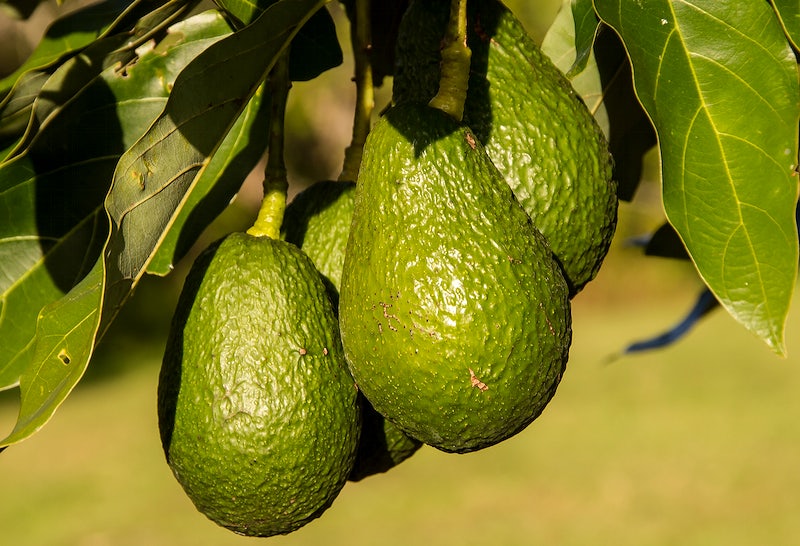
5. Kumquat Tree –
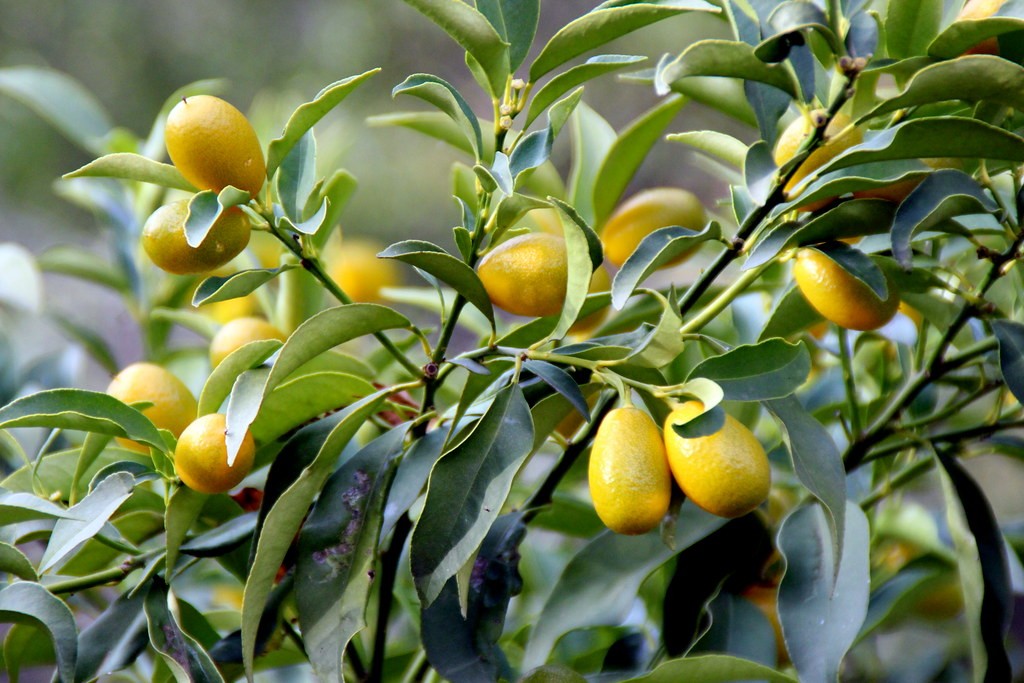
6. Fig Tree –
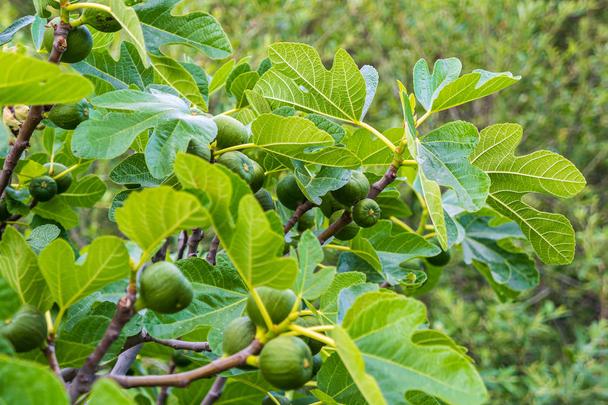
7. Pomegranate Tree –
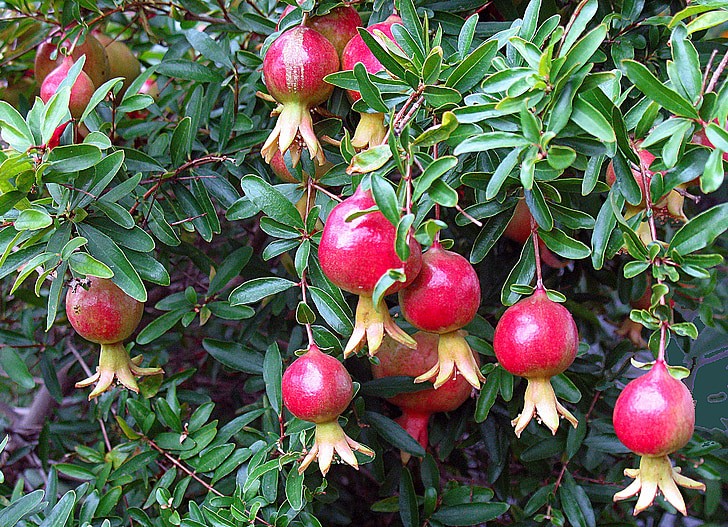
What Are The Benefits of Small Fruit Trees?
Small fruit trees, including both dwarf fruit trees and naturally small varieties, offer a range of benefits for gardeners and homeowners. Here are some advantages of small fruit trees:
Space-Saving:
Small fruit trees are ideal for gardens with limited space. They require less room compared to standard-sized trees, making them suitable for urban gardens, small yards, or even container gardening on balconies or patios. Small fruit trees allow individuals with restricted space to enjoy the benefits of fruit cultivation.
Manageability:
Small fruit trees are easier to manage and maintain compared to larger trees. Pruning, harvesting, and general care tasks are more accessible due to their compact size. It is easier to reach branches, perform necessary maintenance, and protect the trees from pests or diseases. This convenience makes small fruit trees a practical choice for those with physical limitations or limited gardening experience.
Early Fruiting:
Small fruit trees often reach fruit-bearing maturity earlier than their larger counterparts. They tend to produce fruits within a few years of planting, allowing gardeners to enjoy a harvest relatively quickly. This early fruiting is rewarding and satisfying for both novice and experienced gardeners.
Versatility:
Small fruit trees offer versatility in terms of planting options. They can be grown in the ground, in raised beds, in containers, or even trained against walls or trellises. This adaptability allows gardeners to maximize their available space and explore creative planting designs. Small fruit trees are also well-suited for companion planting or integrating into mixed ornamental landscapes.
Yield:
Despite their smaller size, small fruit trees can still produce a significant yield of fruits. With proper care and maintenance, they offer an abundant harvest that is often sufficient for household needs. Homegrown fruits are not only fresher and tastier but also contribute to a sustainable and self-sufficient lifestyle.
Easy Harvesting:
Harvesting fruits from small trees is convenient and less labor-intensive. Fruits are typically within easy reach, reducing the need for ladders or extensive climbing. This ease of harvesting saves time and effort, making the overall fruit-growing experience more enjoyable.
Aesthetic Appeal:
Small fruit trees can enhance the aesthetic appeal of a garden or landscape. Their compact form, attractive foliage, and delicate blossoms contribute to the overall beauty of outdoor spaces. Small fruit trees can be ornamental in nature, adding color, texture, and visual interest throughout the seasons.
Education and Engagement:
Small fruit trees provide a fantastic opportunity for educational purposes, especially for children. They offer hands-on learning experiences about plant growth, fruit development, and the importance of nature. Children can observe the entire life cycle of a tree and develop an appreciation for the natural world.
Small fruit trees offer space-saving benefits, easy maintenance, early fruiting, versatility in planting, good yields, convenient harvesting, aesthetic appeal, and educational opportunities. They provide an accessible and rewarding way to grow and enjoy fresh fruits while fitting well into various garden settings.
Best Fruit Trees to Grow in South Florida
If you’re looking for the best fruit trees to grow in South Florida, you’ve come to the right place! In this blog post, we’ll give you a rundown of some of the most popular and productive fruit trees that thrive in our warm climate. One of the most popular choices for a backyard orchard is the citrus tree.
Oranges, grapefruits, lemons, and limes are all great options that will produce an abundance of juicy fruits. Citrus trees do best in full sun and well-drained soil. They’re also relatively low-maintenance, making them ideal for busy gardeners.
Another excellent choice for a South Florida fruit tree is the mango. Mangoes are incredibly delicious and easy to grow. They prefer full sun and rich, loamy soil with good drainage.
Mangoes are fairly drought-tolerant once they’re established, so they’re a great option for areas that don’t receive a lot of rainfall. If you have space for a larger tree in your yard, consider planting an avocado tree.
Avocados are another delicious fruit that’s perfect for growing in our warm climate. They need full sun and well-drained soil to thrive.
Small Dwarf Fruit Trees South Florida
If you’re looking for a smaller fruit tree to add to your south Florida landscape, consider dwarf fruit trees. While they may be small in stature, they pack a big punch when it comes to flavor and yield. Dwarf fruit trees are perfect for those with limited space, as they can be easily grown in containers or small garden areas.
And, because of their size, they require less pruning and maintenance than full-size fruit trees. There are many varieties of dwarf fruit trees available, including citrus, peach, nectarine, apple, pear, and plum. When choosing a tree, consider the type of fruit you want to grow as well as the amount of space you have available.
Citrus trees are generally smaller than other types of dwarf fruit trees and are good choices for those with limited space. If you’re interested in growing stone fruits like peaches and nectarines, look for dwarf varieties that are grafted onto disease-resistant rootstock. This will help prevent problems like brown rot from taking over your crop.
When planting dwarf fruit trees, be sure to give them room to grow. Most need full sun and well-drained soil in order to produce an abundance of healthy fruit. Water regularly during the growing season and fertilize according to the manufacturer’s directions.
With proper care, your dwarf fruit tree will provide years of enjoyment – not to mention delicious homegrown produce.
Best Fruit Trees to Grow in Central Florida
Florida is blessed with an abundance of sunshine and warmth, making it the perfect place to grow fruit trees. If you’re thinking about planting a fruit tree in your yard, you might be wondering which variety would do well in Central Florida’s climate. Here are some of the best fruit trees to grow in Central Florida:
1. Orange Trees –
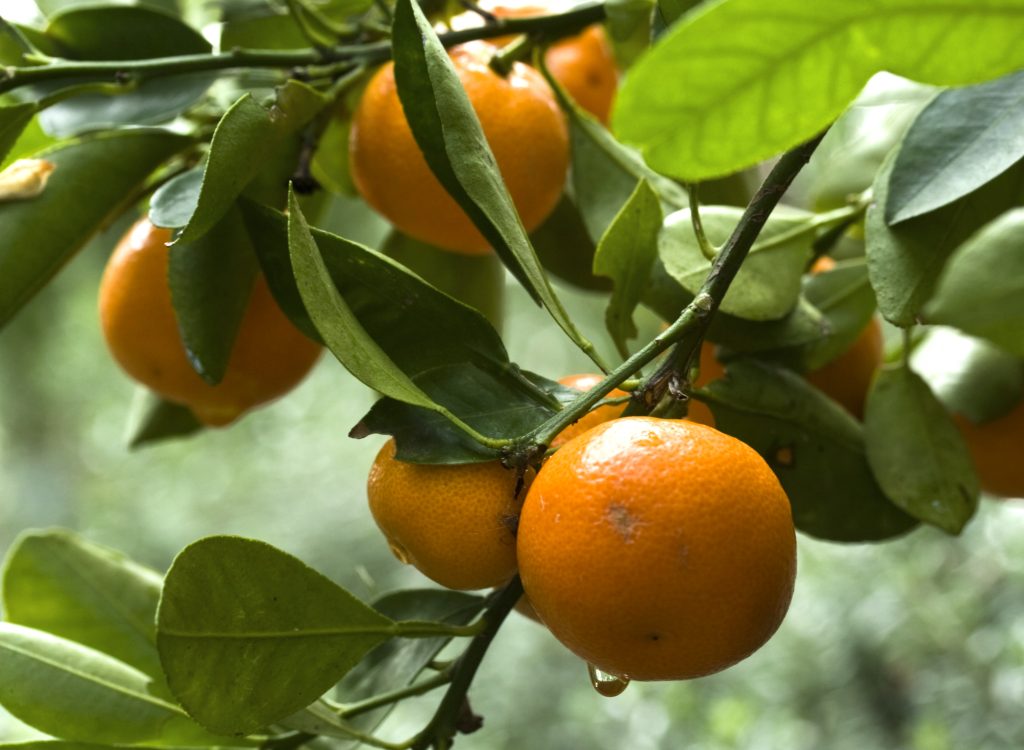
Oranges are one of the most popular fruits grown in Florida, and for good reason. They’re easy to care for and produce a bountiful crop each year. Plus, there’s nothing quite like fresh-squeezed orange juice.
2. Grapefruit Trees –
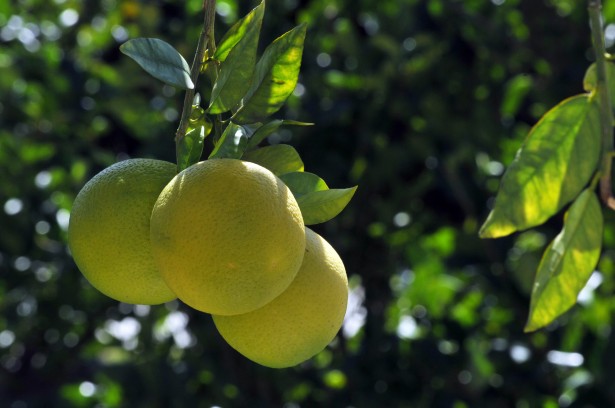
Another citrus favorite, grapefruit makes a delicious addition to any breakfast or lunchtime meal. They can be eaten fresh or used in recipes such as marmalade or salad dressing.
3. Lemon Trees –
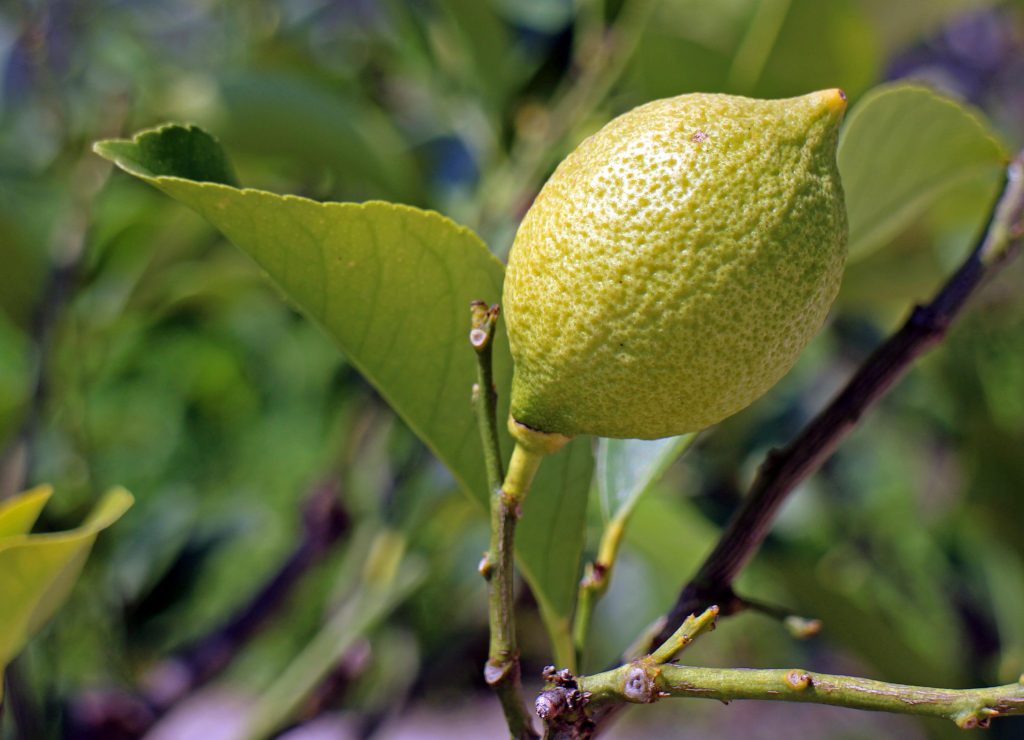
Lemons are tart and acidic, making them ideal for use in cooking or baking. They also have a host of health benefits, including boosting immunity and aiding digestion.
4. Tangerine Trees –
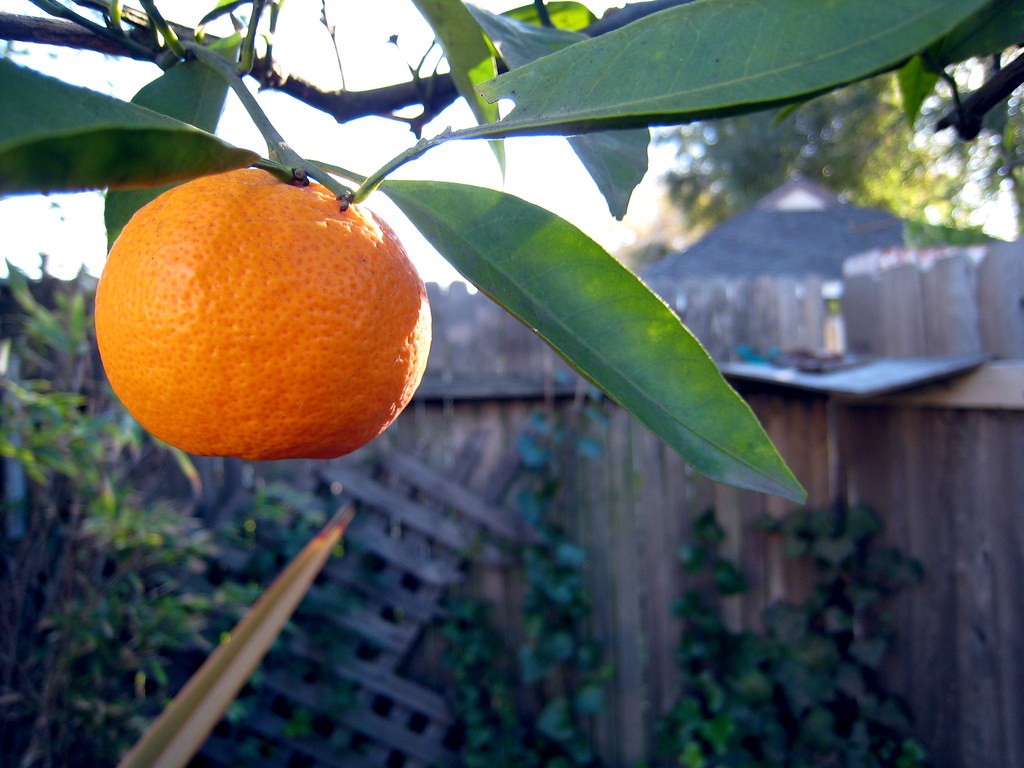
Tangerines are a type of mandarin orange that is sweeter and less acidic than other oranges.
Best Place to Grow Tropical Fruit in Florida
Looking for the best place to grow tropical fruit in Florida? Look no further than Pine Island! This island off the southwest coast of Florida is known for its lush, tropical landscape and ideal growing conditions for a variety of fruits.
Pine Island is home to several commercial nurseries and farms that specialize in tropical fruit. The climate here is perfect for growing mangoes, avocados, lychees, longans, sapodillas, carambola (starfruit), papayas, and more. And with over 200 acres of farmland devoted to these crops, you’ll have plenty of places to buy fresh produce.
In addition to being a great place to grow fruit, Pine Island also offers a relaxed lifestyle and beautiful scenery. So if you’re looking for the perfect spot to enjoy some fresh tropical fruit while soaking up the sun, look no further than Pine Island!
Dwarf Fruit Trees for Central Florida
When it comes to choosing fruit trees for your landscape in Central Florida, there are many factors to consider. But one important factor is the size of the tree. If you have limited space, then dwarf fruit trees may be a good option for you.
Dwarf fruit trees are smaller in stature than standard-size fruit trees and can range from 6 to 10 feet tall. They are perfect for small yards or patios where space is limited. And because they are smaller, they require less pruning and maintenance than their larger counterparts.
There are many different types of dwarf fruit trees available, including citrus, stone fruits, and even figs. So no matter what type of fruit you’re looking for, there’s likely a dwarf variety that will suit your needs. If you’re interested in adding a dwarf fruit tree to your landscape, be sure to do some research first to find the best variety for your particular growing conditions.
And when it comes time to plant, be sure to choose a location that receives full sun and has well-drained soil. With proper care and attention, your dwarf fruit tree will provide years of enjoyment!
Which Fruit Tree is Best for a Small Garden?
There are many fruit trees that do well in small gardens. Some of the best include dwarf varieties of apples, pears, plums, and cherries. Apricots, figs, and oranges can also do well in smaller spaces.
When choosing a fruit tree for a small garden, it is important to consider the tree’s mature size. Dwarf varieties are typically smaller than standard trees and will not take up as much space. It is also important to think about how much fruit the tree will produce.
Some dwarf varieties can produce as much fruit as a standard-sized tree. Another thing to keep in mind when choosing a fruit tree for a small garden is the tree’s water needs. Some trees require more water than others.
This is something to consider if you have limited space for watering or if your area has drought conditions. Finally, it is important to choose a fruit tree that is appropriate for your climate zone. Not all fruit trees will thrive in all climate zones. Choosing a variety that is well-suited to your particular area will help ensure success.
What Fruit Trees Do Good in Florida?
When it comes to fruit trees, Florida is a great state to live in. There are many different types of fruit trees that do well in the warm climate and soil of the state. Some of the most popular types of fruit trees that are grown in Florida include citrus trees, mango trees, and avocado trees.
Citrus Trees One type of fruit tree that does exceptionally well in Florida is the citrus tree. There are many different varieties of citrus fruits, including oranges, grapefruits, lemons, and limes.
Citrus trees require full sunlight and well-drained soil in order to thrive. They also need to be watered regularly, especially during the hot summer months. When choosing a location for your citrus tree, make sure to avoid areas where cold air can pool, such as near a fence or building.
Mango Trees Another type of fruit tree that does well in Florida is the mango tree. Mangoes are a popular tropical fruit that is enjoyed by many people all over the world.
Mango trees require full sunlight and well-drained soil in order to produce tasty fruits. Like citrus trees, they also need to be watered regularly during the hot summer months.
Here is a list of fruit that grows well in Southwest Florida
What Fruits Grow Well in Florida Summer?
There are a variety of fruits that grow well in Florida during the summer months. This includes watermelon, cantaloupe, honeydew, grapes, and strawberries. Each of these fruits has a different harvesting time, so it is important to know when each fruit is in season.
Watermelons are typically ready to harvest in late June or early July. Cantaloupes and honeydews are usually ripe by mid-August. Grapes can be harvested as early as June or July, but the majority of grapes are usually harvested in September.
Lastly, strawberries have a long season and can be picked from late April all the way until early June. To ensure that your fruits are ripe and ready to eat, it is best to check with your local grocery store or farmers market for specific dates. You can also look up when each fruit is in season online before heading out to pick your own!
Can Any Fruit Tree Be Kept Small?
It is possible to keep most fruit trees small through pruning. The amount of pruning required to maintain a smaller size will depend on the type of tree. Some trees, like apples, pears, and cherries, need more aggressive pruning to stay small.
Other trees, like peaches and plums, can be kept small with less pruning. There are also dwarf varieties of some fruit trees that are bred to stay smaller. The best time to prune fruit trees is in late winter or early spring before the tree begins to produce new growth.
This will give the tree time to recover from the pruning before it has to put all its energy into producing fruit.
7 Fast Producing Fruit Trees Every Florida Homestead Garden Should Grow
Frequently Asked Questions
Q: What are some small fruit trees suitable for growing in Florida?
A: Some small fruit trees that thrive in Florida include citrus trees like ‘Meyer’ lemon and ‘Satsuma’ mandarin, dwarf peach and nectarine trees, dwarf apple trees like ‘Anna,’ and ‘Dorsett Golden,’ and small avocado trees like ‘Wurtz’ and ‘Holiday.’
Q: Can small fruit trees be grown in containers in Florida?
A: Yes, many small fruit trees can be successfully grown in containers in Florida. This allows for flexibility in gardening, especially for those with limited yard space or for individuals living in apartments or condos.
Q: Do small fruit trees require specific care compared to larger fruit trees?
A: While care requirements may vary slightly, small fruit trees generally have similar care needs as larger fruit trees. Adequate sunlight, well-draining soil, regular watering, proper pruning, and fertilization are essential for their healthy growth and fruit production.
Q: How long does it take for small fruit trees to bear fruit in Florida?
A: The time it takes for small fruit trees to bear fruit can vary depending on the tree type and variety. Generally, small fruit trees start producing fruit within a few years after planting, providing a rewarding harvest relatively quickly.
Q: Are small fruit trees more suitable for urban gardens in Florida?
A: Yes, small fruit trees are an excellent choice for urban gardens in Florida due to their compact size. They are ideal for small yards, balconies, patios, and container gardening, allowing urban gardeners to enjoy homegrown fruits even in limited spaces.
Q: Can small fruit trees in Florida withstand the state’s climate and weather conditions?
A: Yes, many small fruit trees are well-adapted to Florida’s climate. They are bred or selected for their ability to thrive in the state’s warm and subtropical conditions, making them resilient to the region’s weather fluctuations, high humidity, and occasional cold snaps.
Conclusion: Small Fruit Trees to Grow in Florida
If you are looking for small fruit trees to grow in Florida, there are several options available. citrus trees, such as oranges and grapefruits, are popular choices. Other options include figs, mulberries, and pomegranates.
Each of these fruits has unique benefits and can provide you with a delicious addition to your meals or snacks.

